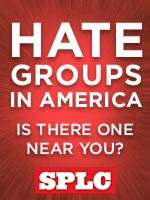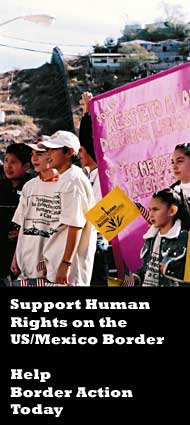Interesting discussion going on here. Seems that the Methodist Church of Great Britain is banning members of the British National Party (BNP), which is a whites-only political party, from joining the denomination.
So this raises again the question, what is the proper role of a Christian denomination when it is confronted with the fact of an officially racist or antisemitic party? (This one won two seats in Parliament.)
Warning: You are embarking on a stream-of-consciousness exploration of this headache. It ain't no place for sissies.
If it is proper for a denomination to ban racists and antisemites, what about pornographers? Homosexuals? Women who have abortions? Bank robbers? You see the problem.
On the other hand, if a denomination espouses certain values, shouldn't it stand up for them? If it has, say, ten commandments, shouldn't its members be made to abide by them? After all, they're not the ten suggestions.
We all know that some Catholic clergy have insinuated themselves into the voting booth on the matter of Democrats' support for a woman's right to abortion. Do we think that's kosher (you should pardon the expression)? Are we in favor of that?
And if not, shouldn't we dislike banning racists from our denomination just as much? What's the dif?
That's what I was wondering.
If there's a problem in the British Methodists' or the American archbishops' approach, where does it reside? Is it in the nature of the behavior that's indicted? Is there something inherently different between racism and having an abortion that makes banning adherents of one OK but not banning adherents of the other? And can we apply that difference--if any--axiomatically, to help us decide which behaviors to ban and which to ignore? For instance: Since everybody knows racism is terrible and so is adultery, therefore a denomination is right to ban racists and people who commit adultery. Right?
Not comfortable with that? Me, either.
So maybe the problem doesn't reside in the nature of the indicted behavior. Maybe the problem resides in the nature of the establishment--in this case, in the nature of a Christian denomination. In the nature of the Church.
By nature, I mean its authentic mission.
I haven't reached the end of my ruminations and I'm no expert on church order and discipline. I'm still thinking about this. but for now, I suspect it's not in the authentic mission, or role, of a Jesus church to attempt to impose morality by force--which is what punitive action comes down to.
Well, but what about excommunication. And defrocking.
Did you know that excommunication is construed to be the act of removing oneself from "communion with God," and not as the imposition by the church hierarchy of punishment for one's misbehavior? I didn't.
As for defrocking,, or laicization, this is a hierarchichal judgment of a priest or ordained minister's grave misbehavior. Laicization--returning the cleric to the status of lay person--can apply only to clery, by definition. Accordingly, it should be seen as a means of enforcing the church's authority over its priests--with whom it has a particular and special relationship.
OK, then, what about the fact that some established, mainline denominations do impose punishments on lay members for behaviors seen as grave sins?
Some do. But apparently not many do, and I don't think that's an accident. Cults, on the other hand, appear to do so fairly regularly. Maybe the reason cults do and most mainline denominations don't is because such punishment is a means of enforcing authority, not morality.
I don't think morality can be enforced. And that's why I don't think withholding membership in the denomination of British Methodism is an appropriate response to members of the BNP.
Who should deal with racism, then?
I think it's the role of religious denominations to teach and inculcate values, and the role of the criminal justice system is to enforce the law.
All the jaw-flapping on the Right about "Christian nations," Western laws just aren't exact embodiments of Christian values. I don't think I've seen a law against hating thy brother. If you want an exact correspondence, I give you Sharia. I don't think we want to go there, do we?
Given that law is secular and religious values are, well, religious, it follows that the role of political parties is to advocate for principles of law and government, not for religious do's and don'ts. Not for scriptural values per se, but for the good order of a society. It also follows that the role of religions is to advocate for religious principles, nearly always grounded in some holy writ.
I've seen what confounding church and state can do. That's why I recommend that we keep our churches well clear of the business of politics and government, and our political parties well clear of the business of churches.
Let the political parties denounce and abjure racism, homophobia, antisemitism, and the like. Let them advocate for and enact the laws that punish these behaviors. But let the churches preach against them, attempting to influence the values of the citizens who will select the ruling party and thus determine the nation's laws and penalties. Keep the churches out of intervention in the democratic process, and the parties out of the business of the churches.
Sunday, July 12, 2009
Church Outlaws?
Posted by
PICO
at
7/12/2009 01:46:00 PM
Subscribe to:
Post Comments (Atom)



















0 comments:
Post a Comment